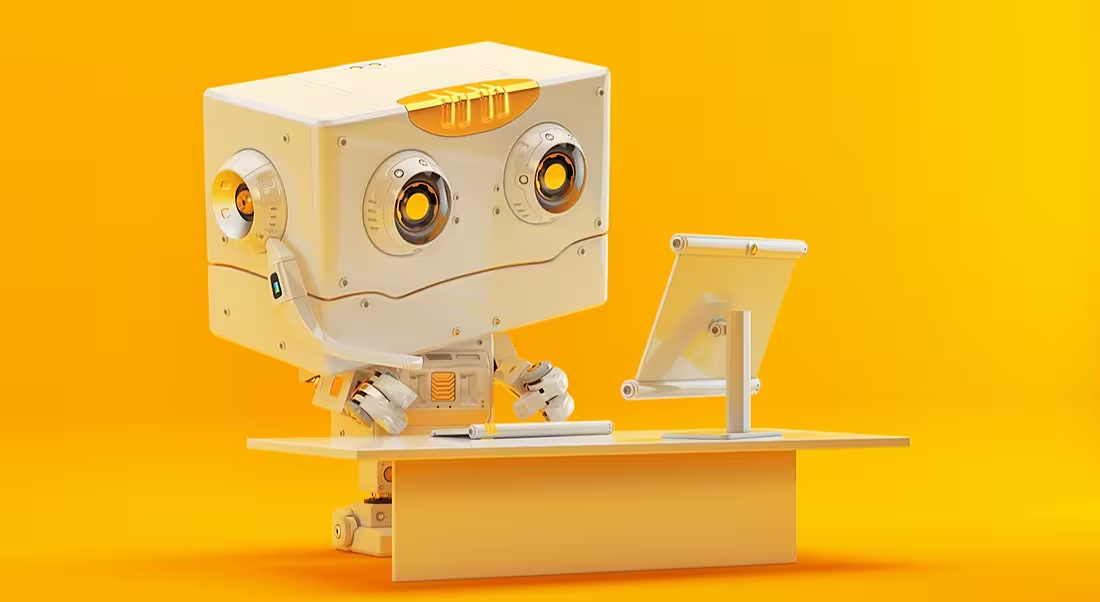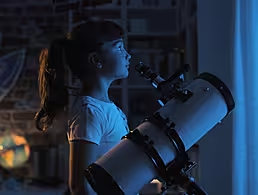As automation is becoming increasingly widespread, what does that mean for human careers? TechWatch editor Emily McDaid reports from the latest 4IRC debate.
This month’s Fourth Industrial Revolution Challenge (4IRC) debate took place on 20 March at the Crescent Arts Centre in Belfast.
Four speakers discussed:
- What are the ethical and societal impacts of automation?
- How can we support education and employers to get ready for jobs that don’t exist yet?
- What skills will be needed in future?
- What jobs will be created that don’t exist yet?
Elaine Smyth, Catalyst Inc Connect. Image: TechWatch
Speaker: Elaine Smyth, head of programmes, Catalyst Inc Connect
I wanted to give an overview of the key findings from Catalyst’s recent Future of Work Summit.
In general, the topic of automation taking jobs really isn’t new. Lawmakers have been looking at this for quite some time. In 1580, Queen Elizabeth I refused a patent for a mechanical sewing machine because she feared that so many people would become unemployed. Fast-forward to now and we have so many jobs impacted by automation already.
In our research, commissioned each year on the knowledge economy, we asked our economists to run some modelling, and they came up with jobs that will be created that don’t exist yet.
What is vital going forward is the combination of skills; humans doing what only humans can do. For all businesses, that’s a challenge.
It’s not just about efficiency, it’s about creativity and innovation.
Lucy McKenna, Full Aeon. Image: TechWatch
Speaker: Lucy McKenna from Full Aeon, a learning development agency, designing and delivering creative learning programmes
I spent 10 years working for Google. Although I had three official roles, I changed job about eight times. For me, automation gives people the opportunity to dig into their potential of what they’re really good at.
People ask: will robots take my job? My answer is: automation already has taken your job.
If I look at my career of jobs, starting as a market stall tender at age 14 to entrepreneur, all of my jobs have been automated or been impacted greatly by technology.
At Google, managers would say, ‘Part of your job is to get rid of your job.’ But, even though we can automate, we don’t always choose to. Service stations could install pay-at-the-pump, but they want you to come into the shop and buy coffee.
It’s very clear that some jobs are disappearing and changing.
What will the future of work look like? In the future, right-brain functions are going to be much more important than left-side.
We’ll be much more collaborative in future. Jobs will be changeable, so we need to be lifelong learners. There could be fewer jobs. But, flipping that, instead we could work less hours. What will be the function of work, to earn money or to gain meaning?
Forget the narrative of ‘a job for life’. Don’t ask kids what they want to be when they grow up; ask them instead what they really enjoy doing, what they talk to their mates about. We will need to focus on learning as much as possible about ourselves.
Be ready for change. Approach potentially fearful situations with curiosity. We need changes to the education system and economic system. We need younger generations to be problem-solvers and collaborative.
Next, we need to look at the financial system, at how money flows into and out of our economic system. I’ve been an advocate for Basic Income Ireland, so all people would get a UBI [universal basic income] whether they work or not.
In summary, I’m a fan of robots because I think they can make us human beings instead of human doings.
Niall Cullinane, QUB Management School. Image: TechWatch
Speaker: Dr Niall Cullinane, senior lecturer at Queen’s University Belfast Management School and author of A Very Short, Fairly Interesting and Reasonably Cheap Book About Employment Relations
In media, daily articles discuss how many jobs will be taken by robots. This isn’t a new narrative – automation mania has been around a long time in the history of industrial capitalism.
But don’t we say, ‘This time it is quite different; the technology is more pervasive, with a bigger scope and a broader range?’
We need to remember this isn’t a neutral narrative, it’s pursued by people with an agenda or a stake in it. That could be academics selling books, software firms selling platforms, consulting firms selling advice or media selling clickbait.
Let’s interrogate this message with a bit of academic endeavour. If we take the idea that automation is actually coming to take your job, there are a lot of inbuilt assumptions, such as: ‘We can predict what investment decisions are going to be by firms that operate in unregulated, fast-moving, uncoordinated economies.’ You have to be a bit sceptical about forecasts that claim to be able to predict those behaviours.
If you read the business press, we don’t know what investment decisions will be made in six months, so how do we know 12 or 15 years down the line?
There’s a difference between what’s possible in technological engineering and what translates into opportunities in the economic arena. For example, Apple could put out a better phone, but their shareholders want customers to buy a new version next year.
Technology and whether it’s adopted is a political question. It’s not technology that will take a job, it’s the managers who decide how to use technology to increase efficiency. I’ll present two options that demonstrate this.
Option one: An employer fires half his workforce by implementing automation. Profits increase and all the gains go to the employer. Society loses.
Option two: An employer asks workers to deploy automation to earn extra leisure time. The employer doesn’t earn the same profits as option one, but nothing is lost to the employer. However, the workers gain from this model, society gains from this model.
The crucial question is the balance of power in the workplace. Employers can choose option one if they have the ability to choose option two.
Paul Moorhead, Kraydel. Image: TechWatch
Speaker: Paul Moorhead, owner of start-up Kraydel, which uses technology to help elderly people live independently
A McKinsey report said less than 5pc of occupations could be automated, but 60pc of the tasks people do in their jobs could be automated.
Machine learning is slowly converging on the Master Algorithm, which states that anything that can be learned will be learned.
Jobs with these three qualities are likely to be automated:
- repetitive
- based on rules
- involve limited or well-defined physicality
Automation can replace low-paid jobs like cashiers and drivers, but it can also be accountants, insurance agents, even doctors.
I’m optimistic because we asked ourselves this question in 1979, but look where we are now – employment levels are higher than they’ve ever been.
Also, do we want people to do jobs that are repetitive, dangerous? I think not. If we’re producing a workforce of people that are only capable of repetitive, rule-based and dangerous jobs, then we are doing something wrong.
Right now, there’s a tech gold rush for workers with skills in machine learning and data science. But some tools are freely available, such as TensorFlow (open source), and there are Google APIs for speech-to-text.
Kraydel is about increasing social inclusion and independence for the elderly. (Read TechWatch’s description of the company here.)
Care workers make thousands of visits to supervise, to sit there for 15 minutes and watch the elderly take medication. Kraydel automates the things a care worker would do.
Panel discussion
All of the above speakers took part in a panel, taking questions from the audience.
For Paul: I enjoyed your talk. You mentioned about loneliness affecting old people but, on the flip side, you said you were going to develop an app that diminishes their time with care workers – how does that help?
Moorhead: You could remove the three medication visits per day and turn it into a one-hour visit that would entail more meaningful interaction. In addition, the tech would enable video calls with friends, family etc.
For Paul: I have experience looking after elderly parents, and would have loved the technology. Who are you aiming it at? Because there are so many regulations around NHS care.
Moorhead: One of our big markets is domiciliary care market, care homes. No sensible start-up tries to sell anything to the NHS or you’d go bust. Kraydel isn’t classed as a medical device so we don’t have to go through FDA approval, for instance.
Is there sufficient global capital to automate to suitable effect?
Cullinane: A lot of mainstream economists are talking about circular stagnation, where the level of growth enters a downward trajectory. Maybe we’re entering stagnation in capitalism, because a lot of growth since 2008 is heavily reliant on quantitative easing; a lot of that growth is reliant on debt and credit. And that kind of system is not conducive to the type of growth we saw between 1950 and 1970. We’ve had a lower level of investment in stable economic factors.
There could be a structural problem in capitalism. Large companies aren’t using their bailouts to help the wider economy, they are involved in the shareholder economy where they deliver quick returns to their shareholders – but this doesn’t support the long-term innovation needed for a stable economy.
McKenna: I’m not an expert here but I wanted to say, when I talked about universal basic income, it is possible to do a UBI. There are reports that have determined it is a possibility.
Can we automate creativity in arts, music? What qualifications pathway would you encourage your child to pursue?
McKenna: Yes, AI is creating music and art, so it is technically possible. But to look at the second question, I wouldn’t encourage any child or anyone to do something. The way I would always do that is to help people explore what is important to them, what excites them, and help them make decisions that are best for them.
Moorhead: A comment on the music: there are AI systems trained to mimic the music of a composer – something like 70pc of the audience didn’t know the difference. Anything that can be learned will be learned. It’s not beyond the boundaries of what AI can do.
For Paul: what is the future of software developers and testers?
Moorhead: I think we’re 20 or 30 years away from software systems being able to write better software systems, that could then write better ones, and then some really interesting things could happen.
What about the increasing security risk of automation? A disgruntled employee has the power to damage an entire country.
Cullinane: We need some form of social regulation that is effective, systems that can oversee. The problem in our society is that resources and power are skewed in favour of some groups over others. But the other parts of society aren’t powerless – they can form collectively to improve society.
By Emily McDaid, editor, TechWatch
A version of this article originally appeared on TechWatch




